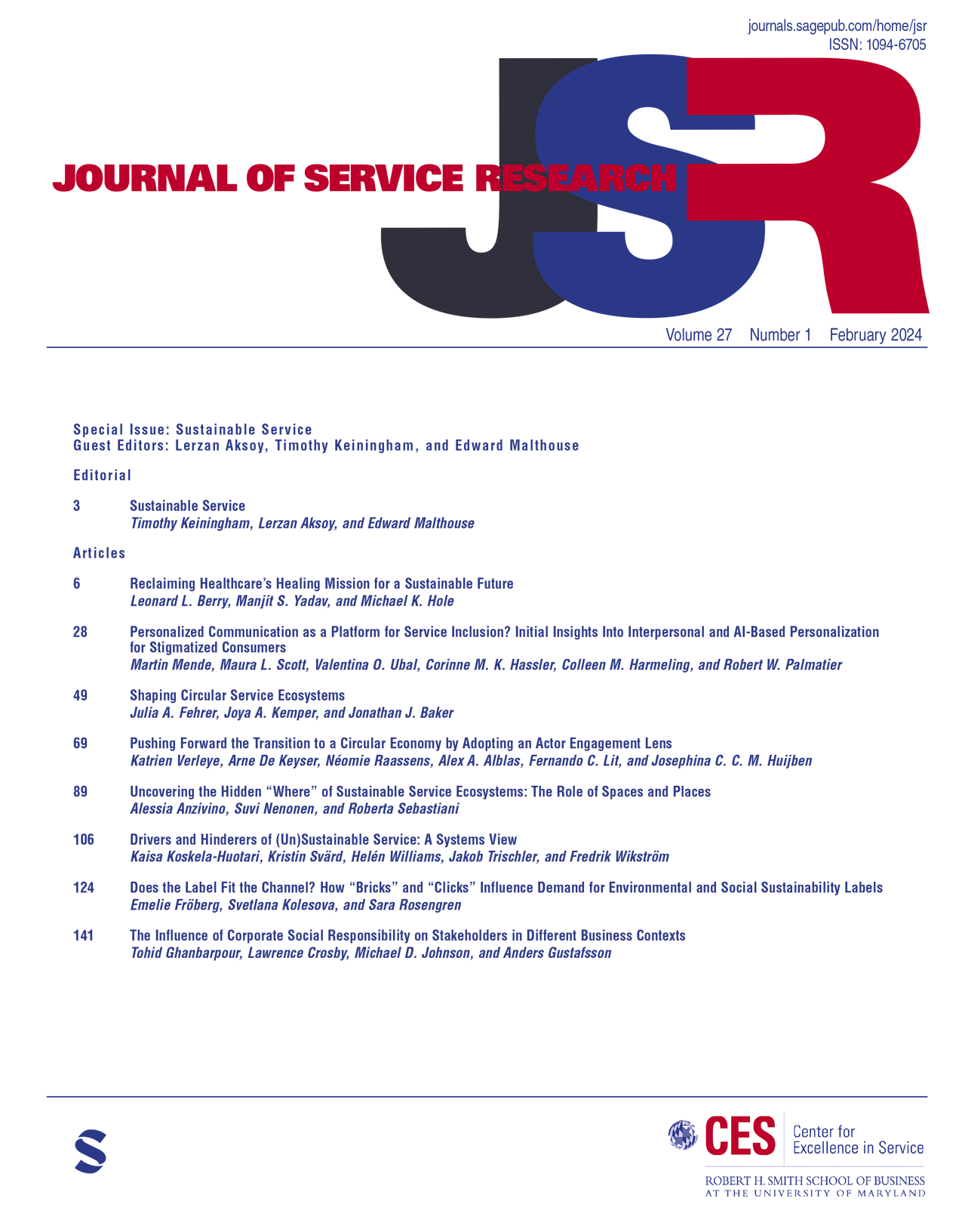Ambient Temperature in Online Service Environments
IF 8.6
2区 管理学
Q1 BUSINESS
引用次数: 0
Abstract
Ambient Temperature in Online Service environments (ATOS) is a sensory cue not directly accessible in current online servicescape technology, but inferred from secondary cues, particularly visual ones. This study integrates research on cross-modal inferences with a situated cognitions framework and the stereotype content model to show that ATOS enhances judgment of service provider warmth, in turn influencing important service outcomes. A pilot study explores the linkages between consumer online and offline experiences, providing evidence for online service environments’ capacity (especially ATOS) to shape customer judgment and behavior. Study 1 examines a tropical island holiday resort to show that online representations of the environment evoke situated cognitions and preferences consistent with high ambient temperature. Study 2 uses virtual tours of cafés to demonstrate that ATOS, through judgment of service provider warmth, positively influences purchase intention and other managerially important service outcomes. Study 3 employs 12 service contexts to replicate ATOS effects, mediated through warmth, and to show that effects are stronger in contexts where service provision is directed more at objects (vs. people). Given that ambient temperature is ubiquitous in all types of service settings and easily adjusted by practitioners, managerial implications outline how service marketers can more effectively employ ATOS.在线业务环境温度
在线服务环境中的环境温度(ATOS)是当前在线服务技术无法直接获得的感官线索,而是从次要线索(特别是视觉线索)中推断出来的。本研究结合情境认知框架和刻板印象内容模型的跨模态推理研究,表明ATOS增强了对服务提供者热情的判断,进而影响重要的服务结果。一项试点研究探索了消费者线上和线下体验之间的联系,为在线服务环境(尤其是ATOS)影响消费者判断和行为的能力提供了证据。研究1考察了一个热带岛屿度假胜地,表明环境的在线表征唤起了与高温环境一致的情境认知和偏好。研究2使用虚拟旅行的咖啡机来证明ATOS通过对服务提供者热情的判断,正向影响购买意愿和其他管理上重要的服务结果。研究3采用12个服务情境来复制ATOS效应,通过温暖来中介,并表明在服务提供更多针对对象(相对于人)的情境中,效果更强。鉴于环境温度在所有类型的服务设置中无处不在,并且很容易被从业者调整,管理含义概述了服务营销人员如何更有效地使用ATOS。
本文章由计算机程序翻译,如有差异,请以英文原文为准。
求助全文
约1分钟内获得全文
求助全文
来源期刊

Journal of Service Research
BUSINESS-
CiteScore
20.30
自引率
6.50%
发文量
28
期刊介绍:
The Journal of Service Research (JSR) is recognized as the foremost service research journal globally. It is an indispensable resource for staying updated on the latest advancements in service research. With its accessible and applicable approach, JSR equips readers with the essential knowledge and strategies needed to navigate an increasingly service-oriented economy. Brimming with contributions from esteemed service professionals and scholars, JSR presents a wealth of articles that offer invaluable insights from academia and industry alike.
 求助内容:
求助内容: 应助结果提醒方式:
应助结果提醒方式:


